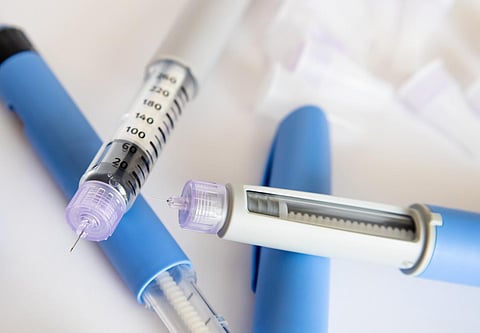FRIDAY, Nov. 1, 2024 (HealthDay News) -- Glucagon-like peptide-1 receptor agonists (GLP-1 RAs) can decrease the risk for developing early-onset colorectal cancer (EO-CRC) in patients with diabetes regardless of weight, according to a study presented at the annual meeting of the American College of Gastroenterology, held from Oct. 25 to 30 in Philadelphia.
Temitope Olasehinde, M.D., from Case Western Reserve University in Cleveland, and colleagues examined the impact of GLP-1 RA use on EO-CRC risk. The analysis included data from roughly 1.8 million patients (aged younger than 50 years) with a diagnosis of type 2 diabetes (subsequently prescribed antidiabetic medications) but with no prior CRC diagnosis identified from the TriNetX health research network.
The researchers found that among 77,688 propensity-matched patients, the GLP-1 RA cohort was significantly more likely to be older (44.21 versus 36.45 years), female (56.3 versus 50.9 percent), White (54.3 versus 53.4 percent), and non-Hispanic/Latino (65.1 versus 57.1 percent) and have more comorbidities and higher body mass index (36.78 versus 30.62 kg/m2) compared with the no GLP-1 RA cohort. The GLP-1 RA cohort had significantly lower odds of developing EO-CRC (0.4 versus 0.7 percent) versus the no GLP-1 RA cohort. Those with obesity taking GLP-1 RAs had significantly lower odds of developing EO-CRC versus patients with obesity not taking GLP-1 RAs.
"Future randomized controlled studies are needed to validate these findings, which may have significant implications for CRC prevention in younger patients," the authors write.
Abstract
More Information


